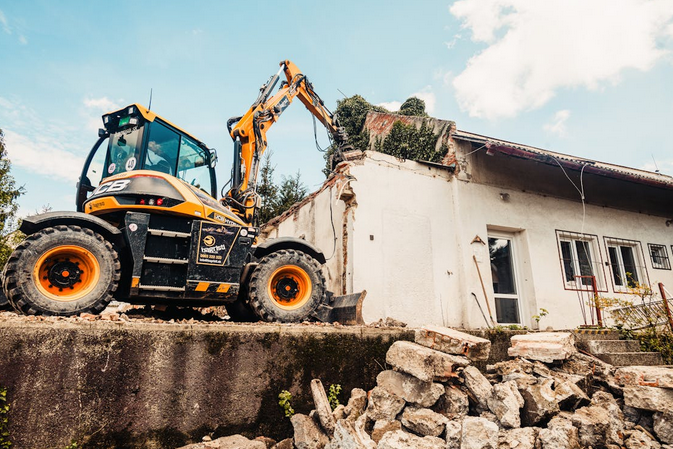What Sets Professional Moving Experts Apart From DIY Moves
Moving to a new home can be exciting. It can also be exhausting and complex. Many people consider handling the process themselves to save money, while others look into services such as the man and van in Coulsdon or hire full professional moving experts. The difference between these approaches goes beyond cost. It affects safety, efficiency, and peace of mind. Understanding what sets professional movers apart helps homeowners make informed decisions before packing the first box.
Logistics Expertise and Planning
Professional movers begin with a clear plan. They assess the size of the move, timeline, and special requirements. Routes are mapped carefully. Parking permits and building access are confirmed in advance. DIY moves often rely on last-minute organization. Important details may be overlooked. Professionals manage logistics systematically. This preparation reduces delays and confusion on moving day.
Efficient Packing Techniques
Packing is more than placing items in boxes. Professionals use tested methods to protect belongings. Fragile items receive layered padding. Furniture is wrapped securely. Boxes are labeled for organized unloading. DIY packing often lacks structure. Items may shift during transport. Proper packing techniques reduce breakage and simplify unpacking later.
Proper Equipment and Tools
Moving heavy items requires specialized equipment. Professional teams use dollies, straps, ramps, and protective covers. These tools improve efficiency and safety. Most DIY movers rely on basic household supplies. Without the right equipment, lifting becomes risky. Professionals handle weight distribution correctly. This reduces strain and potential injury.
Safety and Liability Protection

Safety is a major distinction between professional movers and DIY efforts. Trained teams understand lifting techniques. They protect floors, walls, and door frames. Licensed movers also provide insurance coverage. This ensures compensation if damage occurs. DIY moves carry personal liability. Accidents can result in costly repairs or medical expenses.
Time Management and Speed
Professional movers work with speed and coordination. Each team member has a defined role. Loading and unloading follow a structured sequence. DIY moves often take longer than expected. Friends and family may not have experience handling large items. Delays increase stress. Professional efficiency saves valuable time.
Large Items and Handling Specialty
Some household items require special attention. Pianos, large appliances, and antique furniture demand expertise. Professional movers understand how to disassemble and reassemble items safely. They also secure them properly during transport. DIY moves may struggle with these challenges. Incorrect handling increases the risk of damage.
Stress Reduction and Peace of Mind
Moving is physically demanding. It also carries emotional weight. Professionals reduce the burden by managing details. Clear communication keeps clients informed. Unexpected issues are handled calmly. DIY moves often create additional pressure. Coordinating transport, labor, and timing can become overwhelming. Professional support provides reassurance throughout the process.
Cost Considerations and Long-Term Value
Many people assume DIY moves are always cheaper. Rental trucks, fuel, packing materials, and time off work add up quickly. Unexpected damages increase expenses further. Professional movers provide transparent pricing. Their experience helps ensure fewer costly mistakes. The value lies not only in labor but also in reduced risk and improved efficiency.
Professional moving experts stand apart through planning, equipment, training, and structured execution. They manage logistics carefully and protect belongings with utmost care. DIY moves may appear simple, but hidden challenges often arise. Choosing professionals brings efficiency, safety, and peace of mind. The investment supports a smoother transition into a new home without unnecessary stress or damage.


















 Communication is the cornerstone of effective leadership. A skilled leader must be able to convey their vision clearly and also inspire others to follow suit. It’s not just about talking – listening attentively is equally important in understanding team members’ perspectives and fostering a collaborative environment. Open communication channels build trust among team members and encourage transparency, leading to better problem-solving and decision-making processes. Nonverbal cues is known to play a significant role in communication, so leaders must be mindful of their body language and tone of voice.
Communication is the cornerstone of effective leadership. A skilled leader must be able to convey their vision clearly and also inspire others to follow suit. It’s not just about talking – listening attentively is equally important in understanding team members’ perspectives and fostering a collaborative environment. Open communication channels build trust among team members and encourage transparency, leading to better problem-solving and decision-making processes. Nonverbal cues is known to play a significant role in communication, so leaders must be mindful of their body language and tone of voice. Strategic thinking is a crucial skill that sets great leaders apart. It involves anticipating future trends, identifying opportunities, and devising effective plans to achieve long-term goals. A strategic thinker is always looking ahead, analyzing data, and making informed decisions based on a deep understanding of the bigger picture. Leaders with strong strategic thinking skills can adapt quickly to changing circumstances and steer their team in the right direction. They are proactive rather than reactive, constantly seeking ways to innovate and stay ahead of the curve.
Strategic thinking is a crucial skill that sets great leaders apart. It involves anticipating future trends, identifying opportunities, and devising effective plans to achieve long-term goals. A strategic thinker is always looking ahead, analyzing data, and making informed decisions based on a deep understanding of the bigger picture. Leaders with strong strategic thinking skills can adapt quickly to changing circumstances and steer their team in the right direction. They are proactive rather than reactive, constantly seeking ways to innovate and stay ahead of the curve.










 With employees working remotely, it can be challenging to keep track of their productivity and ensure efficient time allocation. This is where Time Doctor comes in handy. Time Doctor is an excellent app for tracking employee time and managing tasks effectively. Thanks to its super user-friendly interface, you can easily monitor how your team spends their work hours. The app provides real-time updates on employee activity, such as the websites they visit or applications they use during work hours. In fact, this app provides detailed reports and analytics on employee productivity, allowing managers to identify areas where improvements can be made.
With employees working remotely, it can be challenging to keep track of their productivity and ensure efficient time allocation. This is where Time Doctor comes in handy. Time Doctor is an excellent app for tracking employee time and managing tasks effectively. Thanks to its super user-friendly interface, you can easily monitor how your team spends their work hours. The app provides real-time updates on employee activity, such as the websites they visit or applications they use during work hours. In fact, this app provides detailed reports and analytics on employee productivity, allowing managers to identify areas where improvements can be made.

 Before car dealers can hit the open road and start selling their inventory, they must first navigate the necessary licensing process. And a key component of this process is filing a surety bond. But what exactly does it mean to file a bond? In simple terms, it means that dealers are required to secure an agreement with a bonding company, known as a surety. This agreement essentially serves as protection for consumers – ensuring that should any issues or disputes arise during the transaction process, there’s financial coverage in place. It acts as a guarantee that the dealer will stick to all applicable laws and regulations surrounding vehicle sales.
Before car dealers can hit the open road and start selling their inventory, they must first navigate the necessary licensing process. And a key component of this process is filing a surety bond. But what exactly does it mean to file a bond? In simple terms, it means that dealers are required to secure an agreement with a bonding company, known as a surety. This agreement essentially serves as protection for consumers – ensuring that should any issues or disputes arise during the transaction process, there’s financial coverage in place. It acts as a guarantee that the dealer will stick to all applicable laws and regulations surrounding vehicle sales.


 Finally, help your child connect with others who share their interests. This could involve finding a mentor or role model in their field of interest or connecting them with an organization that holds events they can join. You can also get your child involved in online communities related to their interests so they can connect with others and share ideas.
Finally, help your child connect with others who share their interests. This could involve finding a mentor or role model in their field of interest or connecting them with an organization that holds events they can join. You can also get your child involved in online communities related to their interests so they can connect with others and share ideas.




 Make sure you know how long you have to complete the playthrough requirement before the bonus expires. Some prizes may only last for a few days, while others may last for months. Knowing how much time you have can help you make sure that you meet the requirements before the bonus expires. In conclusion, when looking for a welcome bonus, it’s essential to consider the deposits and withdrawals associated with it, read through the terms and conditions carefully, determine if the bonus is cashable or non-cashable, check the playthrough requirements, and keep an eye on any time limits. With these tips in mind, you should find a bonus that works for you and helps you get the most out of your online gaming experience. Good luck.
Make sure you know how long you have to complete the playthrough requirement before the bonus expires. Some prizes may only last for a few days, while others may last for months. Knowing how much time you have can help you make sure that you meet the requirements before the bonus expires. In conclusion, when looking for a welcome bonus, it’s essential to consider the deposits and withdrawals associated with it, read through the terms and conditions carefully, determine if the bonus is cashable or non-cashable, check the playthrough requirements, and keep an eye on any time limits. With these tips in mind, you should find a bonus that works for you and helps you get the most out of your online gaming experience. Good luck.
 Once you have decided on the type of devices you want for your home gym, the next step is to invest in quality equipment. You don’t want to skimp on your workout equipment because it will only end up costing you more in the long run. Choose equipment that is durable and built to last. Also, make sure to read reviews before purchasing anything.
Once you have decided on the type of devices you want for your home gym, the next step is to invest in quality equipment. You don’t want to skimp on your workout equipment because it will only end up costing you more in the long run. Choose equipment that is durable and built to last. Also, make sure to read reviews before purchasing anything. The last step to setting up your perfect home gym is to create an inspiring workout space. You want your home gym to be a place that you actually enjoy working out in. So, make sure to add personal touches that make it feel like YOUR space. Add things like motivational posters, music, and any other things that help you get pumped up for a great workout.
The last step to setting up your perfect home gym is to create an inspiring workout space. You want your home gym to be a place that you actually enjoy working out in. So, make sure to add personal touches that make it feel like YOUR space. Add things like motivational posters, music, and any other things that help you get pumped up for a great workout.


 To make more money gambling, you need to choose suitable games. Not all casino games are similar; some present better chances than others. For example, blackjack is a game where skill and strategy can give you an edge over the house. Slot machines are purely luck-based, and the house always has an advantage. So, if you’re looking to make money, it’s important to choose games where you can give yourself a chance to win.
To make more money gambling, you need to choose suitable games. Not all casino games are similar; some present better chances than others. For example, blackjack is a game where skill and strategy can give you an edge over the house. Slot machines are purely luck-based, and the house always has an advantage. So, if you’re looking to make money, it’s important to choose games where you can give yourself a chance to win. Finally, one of the best ways to make more money gambling is to take advantage of bonuses and promotions. Many online casinos offer sign-up bonuses for new players and reload bonuses for existing customers. These bonuses can boost your bankroll, giving you a better chance of making money in the long run.
Finally, one of the best ways to make more money gambling is to take advantage of bonuses and promotions. Many online casinos offer sign-up bonuses for new players and reload bonuses for existing customers. These bonuses can boost your bankroll, giving you a better chance of making money in the long run.

 In poker, you will play against different types of players. There will be tight players who only bet when they have a strong hand, and there will be loose players who bet even when they have a weak hand. It’s essential to avoid paying off tight players. Because they’re usually not bluffing, you’re just throwing away your money if you call their bets.
In poker, you will play against different types of players. There will be tight players who only bet when they have a strong hand, and there will be loose players who bet even when they have a weak hand. It’s essential to avoid paying off tight players. Because they’re usually not bluffing, you’re just throwing away your money if you call their bets.
 One of the immense benefits of getting involved in outdoor sports is that you’ll start to burn some unwanted fat. It is especially true if you participate in hiking and cycling, both excellent forms of cardio exercise. When you combine a healthy diet with regular participation in outdoor sports, you’ll be on your way to shedding those extra pounds in no time.
One of the immense benefits of getting involved in outdoor sports is that you’ll start to burn some unwanted fat. It is especially true if you participate in hiking and cycling, both excellent forms of cardio exercise. When you combine a healthy diet with regular participation in outdoor sports, you’ll be on your way to shedding those extra pounds in no time. Another benefit of outdoor sports is that they can improve sleep quality. When you’re stressed out, it’s often difficult to get a good night’s sleep. But when you’re relaxed and stress-free, your body will be more inclined to get deep, restful sleep thanks to outdoor sports.
Another benefit of outdoor sports is that they can improve sleep quality. When you’re stressed out, it’s often difficult to get a good night’s sleep. But when you’re relaxed and stress-free, your body will be more inclined to get deep, restful sleep thanks to outdoor sports.


 If you want to take your relaxation space to the next level, consider playing calming music in the background or lighting some scented candles. This will help create an even more relaxing atmosphere that you can really sink into.
If you want to take your relaxation space to the next level, consider playing calming music in the background or lighting some scented candles. This will help create an even more relaxing atmosphere that you can really sink into.
 Consulting services provide more than just a fresh perspective; they offer an objective, unbiased view of the situation. The main reasons companies hire consultants are listed here. First off, you can get help with a specific problem or challenge outside the consultant’s scope of expertise. Also, sometimes we need help with a time-sensitive project and require specialized skills that are not available in-house.
Consulting services provide more than just a fresh perspective; they offer an objective, unbiased view of the situation. The main reasons companies hire consultants are listed here. First off, you can get help with a specific problem or challenge outside the consultant’s scope of expertise. Also, sometimes we need help with a time-sensitive project and require specialized skills that are not available in-house.
 Do you know that nowadays, bassinets come with many features? For example, some of them are designed with unique motions that can lull your baby to sleep. Aside from that, this bassinet also has built-in sounds that can soothe your baby. It also comes with remote control, making it easier for you to access the bassinet without disturbing your baby’s sleep.
Do you know that nowadays, bassinets come with many features? For example, some of them are designed with unique motions that can lull your baby to sleep. Aside from that, this bassinet also has built-in sounds that can soothe your baby. It also comes with remote control, making it easier for you to access the bassinet without disturbing your baby’s sleep.
 Salt-free water softeners do not “soften” water in the traditional sense. They do not remove dissolved minerals. They prevent buildup in pipes, dishwashers, washing machines, and other water-consuming appliances. Limescale deposits can form wherever water sits for an extended period, such as in your water heater. The traditional method of softening water is to run it through resin beads. The sodium in these resin beads and the calcium in the water are exchanged as the water passes through the beads. The water remains soft but is still full of sodium.
Salt-free water softeners do not “soften” water in the traditional sense. They do not remove dissolved minerals. They prevent buildup in pipes, dishwashers, washing machines, and other water-consuming appliances. Limescale deposits can form wherever water sits for an extended period, such as in your water heater. The traditional method of softening water is to run it through resin beads. The sodium in these resin beads and the calcium in the water are exchanged as the water passes through the beads. The water remains soft but is still full of sodium.